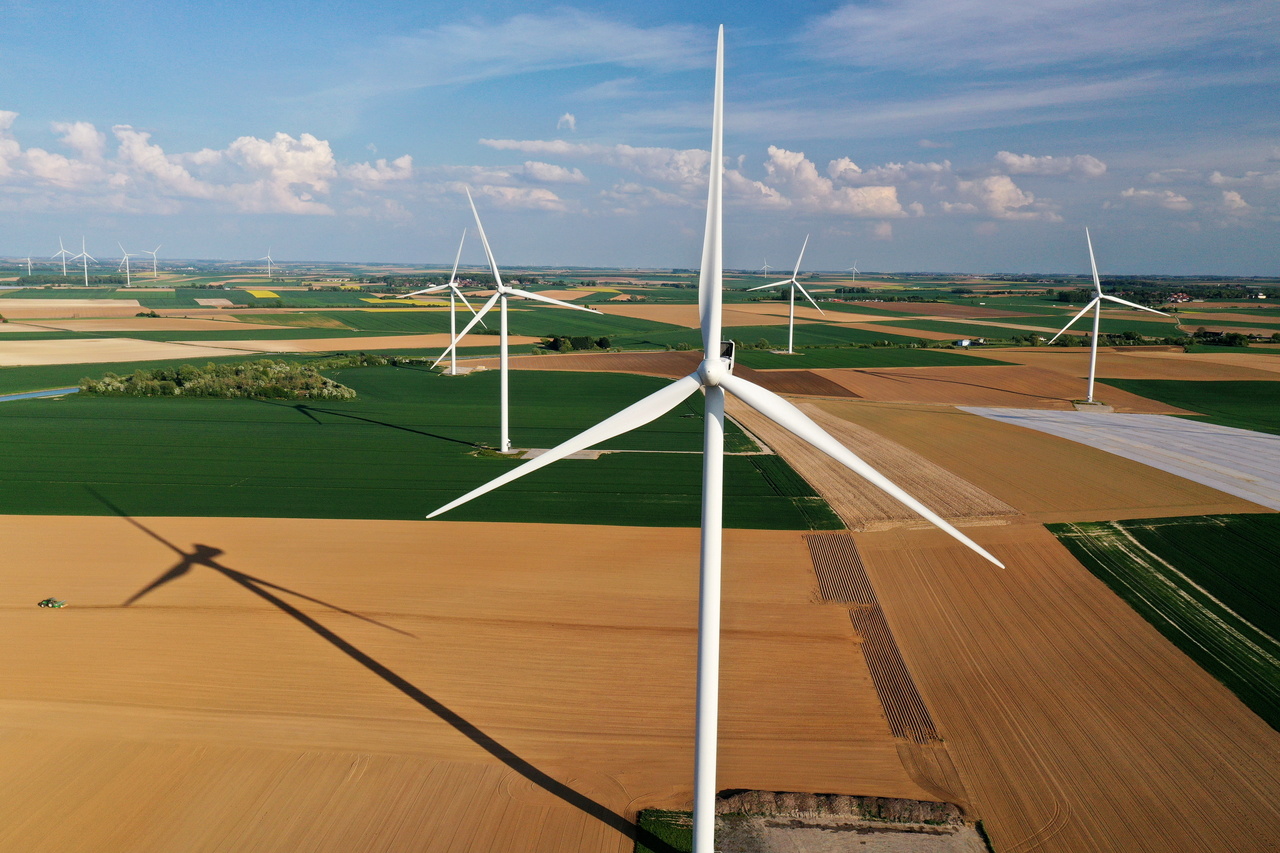Green finance isn't going where it is needed
Sign up now: Get ST's newsletters delivered to your inbox

Calls for systemic reforms to the global finance architecture date back years, if not decades.
PHOTO: REUTERS
LONDON (BLOOMBERG) - Some of the finance world's biggest climate champions may be undone by a relatively small part of their portfolios: emerging market debt.
While many of the world's poorest countries struggle with the economic devastation from Covid-19 and limited access to vaccines, some of the biggest asset managers and their clients continue to earn high returns on emerging market bonds. Those profits are partly why it's so hard for developing nations to make fast progress on cutting emissions.
A new paper by researchers at University College London showed that Africa and other developing regions tend to pay a much higher cost of financing for green energy relative to fossil fuels. This creates a "climate investment trap": Countries that must pay a higher price to green their economies might forego such investments, even if they're the ones that will suffer the most as the planet warms.
Yet, as lead author Nadia Ameli notes, few of the sustainable finance measures in practice today, even in progressive places like the European Union, address how to get capital to poor countries.
She argues that "radical changes" are needed to address this disparity.
The pandemic has made the problem more urgent as the high cost of borrowing for developing nations coincides with a plunge in state revenues.
Last year, 62 countries spent more on debt servicing than healthcare, and at least 36 spent more on bond payments than education, according to Eurodad, a network of civil-society organisations that advocates for financial reforms.
The great irony is that the investment world is bursting with ESG and climate-oriented products and services hunting for assets. There is so much money chasing "green" assets, and so few opportunities, that many ESG funds are loaded with tech stocks rather than companies dedicated to the energy transition or climate adaptation.
A planetary problem surely requires a portfolio to match, but developing countries are considered a risky bet by Western investors. Hence "emerging market" assets tend to make up a very small slice of the investment universe.
This aversion can be compounded by the burgeoning practice of climate financial risk analysis, Ameli notes. The fact that developing countries will be hit the hardest by global warming may mean investors actually penalise them the most.
Meanwhile, wealthier countries suffering from the same pandemic were able to provide emergency relief, and even stimulus, to their economies by issuing bonds at low or even negative rates - regardless of whether they are labelled "green" or not.
The European Union's latest NextGenerationEU issue could have been sold many times over.
The US, Japan and others could fund a high-tech, green industrial revolution at rock-bottom rates, should they find the political will to do so. The International Monetary Fund, historically disposed to fret about debt-to-GDP ratios, laid out a scenario last year showing how effective such a path would be for jobs and growth through 2100.
This tension is set to come to a head at global climate talks to be held in Glasgow, Scotland in November. Rich nations haven't delivered on the US$100 billion (S$134 billion) a year in climate finance for developing countries they promised to raise by 2020. That's led to calls by some to boycott the summit altogether.
An allocation later this year of Special Drawing Rights, the IMF currency, could give poor nations some breathing room. Yet this one-off arrangement won't even cover the total damage done by Covid-19; the Organisation for Economic Co-operation and Development estimates developing countries lost US$700 billion in external private financing last year.
What can be done about this?
Ameli and her co-authors suggest several possible levers, including that the sustainable finance frameworks being implemented in Europe, China and elsewhere could better address the location of investments to provide some incentive for greening developing economies.
"These frameworks would need to evolve, to explicitly target developing economies in how they guide capital flows, if they are to play a significant global role," she said, adding that the IMF and development banks could also use their financing capacity to reduce the cost of capital, such as underwriting perceived risks where necessary.
Avinash Persaud, an advisor to the Barbadian government, recently proposed that "hurricane clauses" be widely adopted in sovereign bonds, automatically suspending payments when disaster strikes.
Calls for systemic reforms to the global finance architecture - such as a global debt-restructuring mechanism, state-contingent clauses, transparency on sovereign debt, and improvements to IMF and World Bank analysis - date back years, if not decades. Most have been vetoed by a few G-7 governments, or struggled to gain traction among the board politics and bureaucracy of the Bretton Woods institutions.
Perhaps some change could also be effected by the big financial institutions themselves, which often help develop these sustainable finance regimes. Ownership of emerging market sovereign bonds is more concentrated than you would think.
Lazard executives wrote last year that "a more institutionalised group of the largest fund managers could be a decisive stakeholder in the near future - if fund managers wish to collectively engage in such a way."
A review of available data by Eurodad showed that BlackRock is the single biggest holder of emerging market debt. The research also suggests that big investment banks potentially have vast influence: Citigroup, Deutsche Bank and JPMorgan were responsible for underwriting half of the sovereign debt from emerging countries for which contracts could be identified.
All these institutions, plus the IMF and the World Bank, loudly support the Paris Agreement goals, as do key governments such as the US, Britain and Germany. They need to direct this enthusiasm to the places that need it most.
• Kate Mackenzie writes the Stranded Assets column for Bloomberg Green. She advises organisations working to limit climate change to the Paris Agreement goals.


